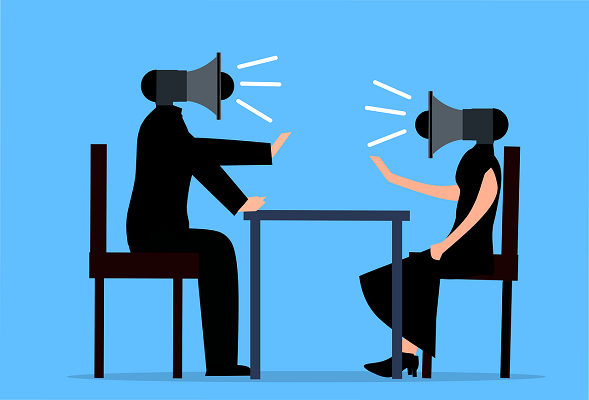At the most recent meeting of the Croydon school board, I was talking to a well-educated journalist — at least, given who she works for, I assume she’s well-educated — who seemed to be unable to grasp the difference between taking something from someone and not giving something to someone.
Suppose every year, Pat turns up at Chris’s house and demands at gunpoint that Chris fork over $1500 to pay for Pat’s kids (and other kids in town) to go to school. Then one year, Chris answers the door with a gun of his own, and declines to give Pat more than $150.
Question: Is Chris taking money away from Pat? Or is Chris not giving money to Pat?
It’s not an academic distinction. If you are a journalist, and you write stories in which you report that Chris (and people like him) are trying to take education away from the children of Pat (and people like him), you’ve identified Chris as a bad person.
And in the current political climate, the only thing that many people feel they need to know in order to make their decisions is: Who are the bad guys here, and who are the good guys?
So you’re effectively saying to people: You don’t have to listen to anything Chris might have to say about why schools shouldn’t cost so much, or why lower-cost alternatives could actually be better for kids, or why certified teachers (who have produced our current 40% proficiency rate) might not be as important as people claim they are, and so on.
That’s all irrelevant. Chris is a bad guy, and that’s all you need to know about him. So if you want to call him names, slander him, or harass his family, instead of addressing the points he’s trying to make, or answering the questions he’s trying to raise, that’s to be encouraged.
After all, as Terry Gross of NPR once pointed out, we don’t have to listen to bad guys. Because we know they’re bad. So anything they might have to say will also be bad.
The main function of journalism has turned into letting us know: Who are the bad guys here, and who are the good guys? Further analysis is not required.
In fact, further analysis is actively discouraged. Because once you know who the bad guys are, they must be defeated at any cost. And if things like civility and rationality and free speech and the rule of law must be tossed aside to secure victory, then as Nancy Pelosi said: ‘If there is some collateral damage for those who don’t share our views, well, so be it‘.
If you’re trying to explain what just happened in Croydon, that’s it, right there. The ‘discussion’ as moderated by journalists was conducted with roughly the same subtlety and depth of analysis as a Tom and Jerry cartoon. And as a result, half the town is now collateral damage.
So be it, right?
